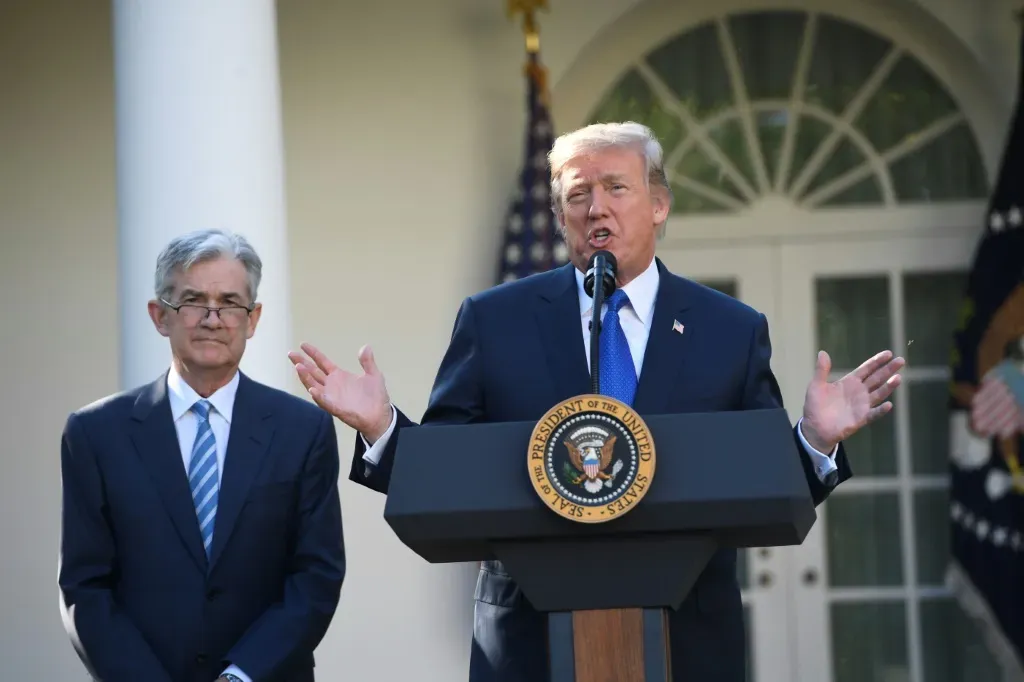No Plans to Remove Powell, Trump Says as Market Volatility Persists

“No intention of firing Powell,” says former U.S. President Donald Trump, as trade tensions with China remain high and economic growth forecasts falter.
In a surprising shift in tone, Donald Trump stated on Tuesday that he has “no intention of firing” Federal Reserve Chair Jerome Powell, despite weeks of harsh public criticism. Speaking from the Oval Office, Trump expressed that while he expects Powell to be “a little more active” in lowering interest rates, he is not seeking his removal.
“He’s a major loser,” Trump had said just last week — a comment that triggered a temporary selloff in stocks, bonds, and the U.S. dollar. While markets have since rebounded, the remarks raised serious questions about the independence of the central bank.
Uncertainty remains about whether a U.S. president even has the authority to fire the Fed Chair, something no administration has previously attempted. However, National Economic Council Director Kevin Hassett fueled speculation by stating last Friday that the White House was exploring the possibility.
Markets React, IMF Downgrades Growth Forecast
Markets appeared reassured following Trump’s softened stance. On Wednesday, the Nikkei 225 rose 1.9%, Hang Seng climbed 2.2%, while Shanghai Composite was nearly flat. In the U.S., S&P 500 gained 2.5%, and the Nasdaq rose 2.7%, with futures also trading higher overnight.
Yet, underlying economic concerns persist. The International Monetary Fund (IMF) issued its steepest downgrade for the U.S. economic growth forecast among all advanced economies this year. The reason: escalating tariffs and global uncertainty.
Tariffs Rise Amid US-China Trade Tensions
Trump affirmed optimism in negotiations with Beijing, promising to be “very nice” — but clarified that tariffs would not fall to zero, even if a deal is reached.
Meanwhile, new tariffs are stacking up:
- US taxes on Chinese goods could reach 245% with recent additions
- Other countries now face a blanket 10% US tariff until July
- China responded with 125% taxes on American imports, vowing to “fight to the end”
Interestingly, Scott Bessent, the U.S. Treasury Secretary, commented that the trade war is “unsustainable” and expected de-escalation.
Investor Concerns: Inflation and Rate Pressure
Investors are increasingly worried that political pressure on Powell to cut rates could fuel inflation, especially with tariffs already driving upward price trends. The uncertainty has shaken confidence in the central bank’s autonomy.



